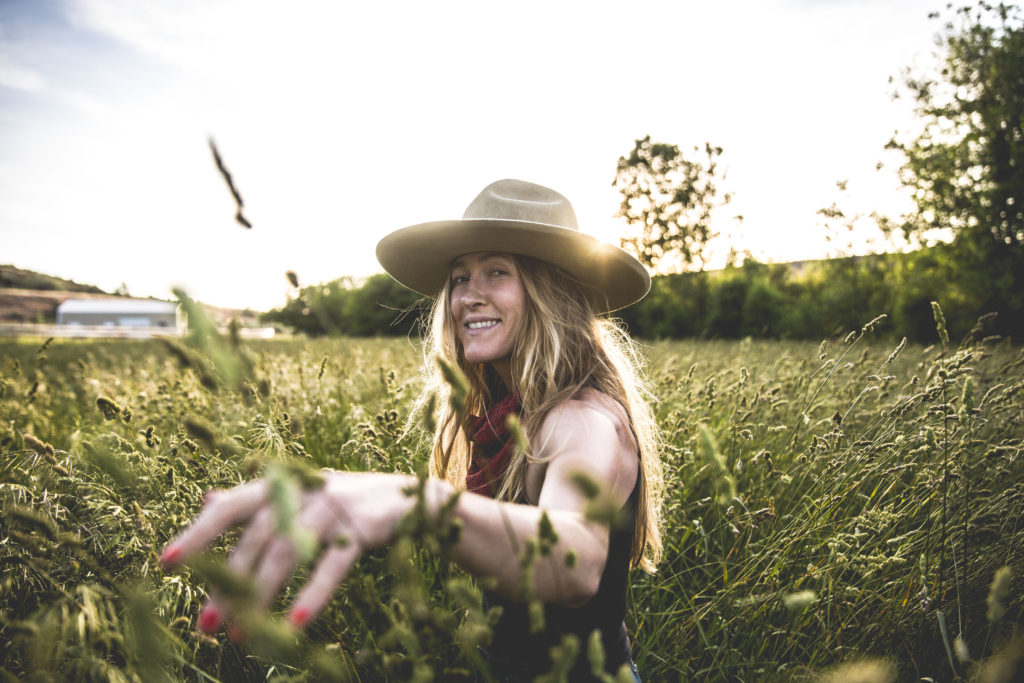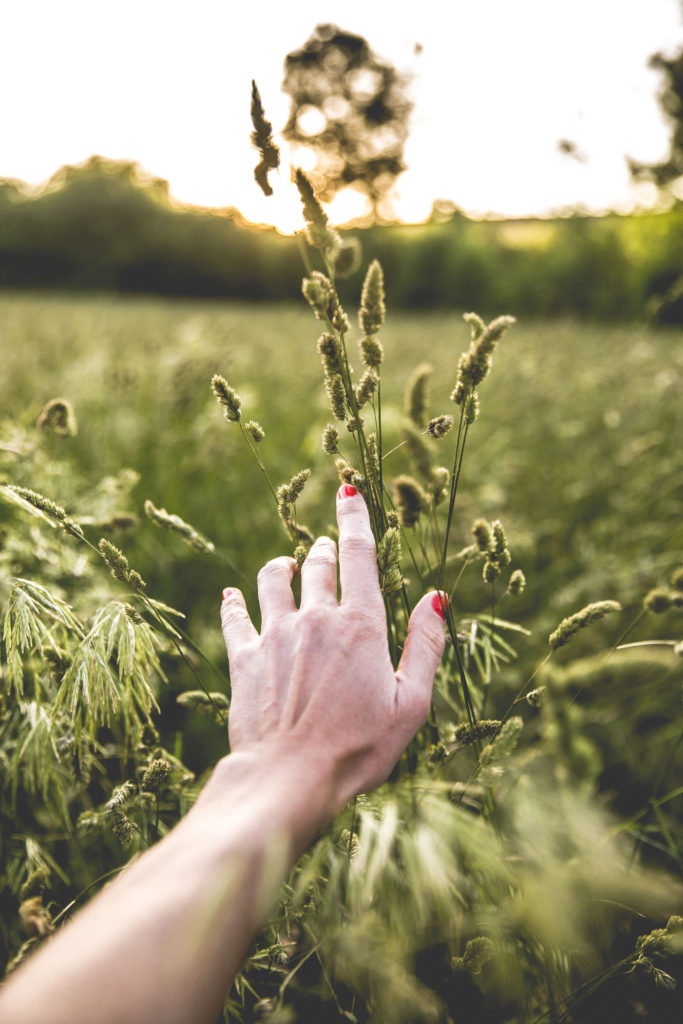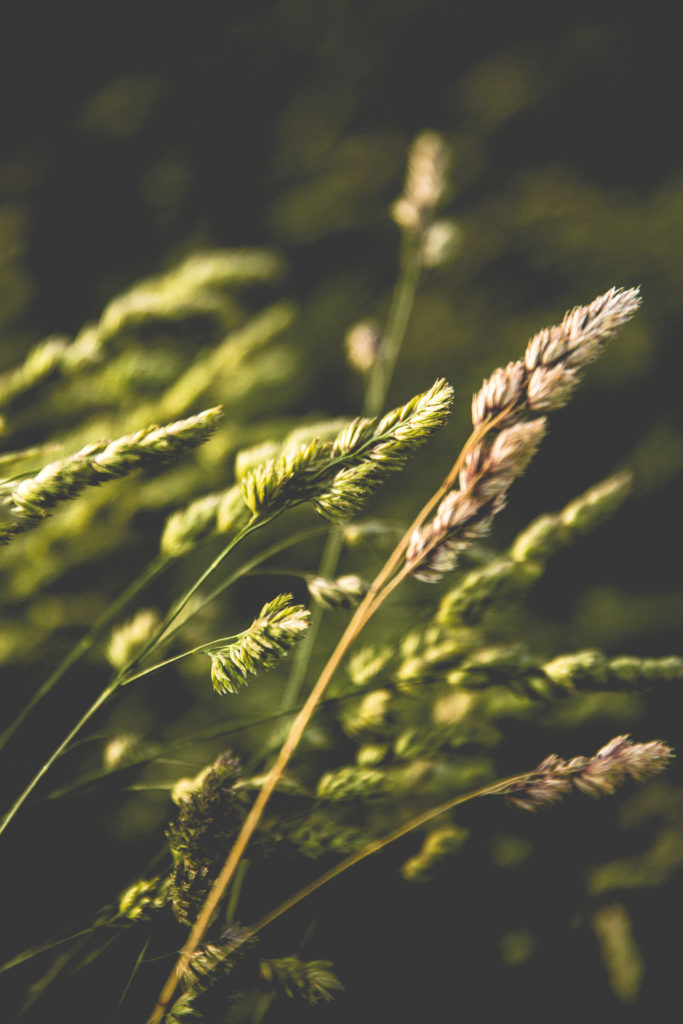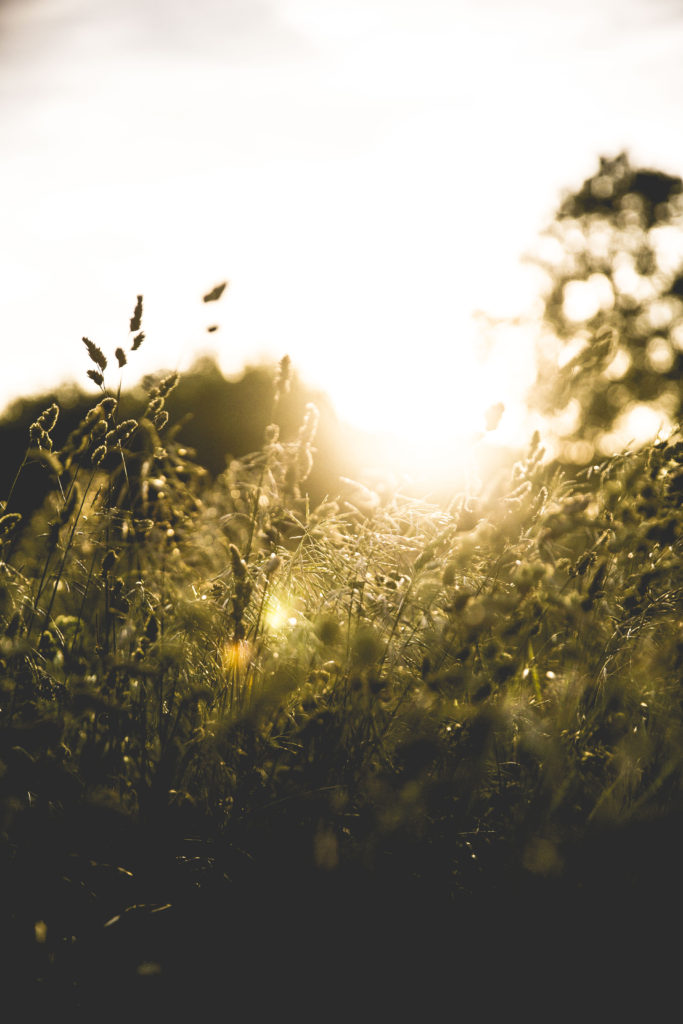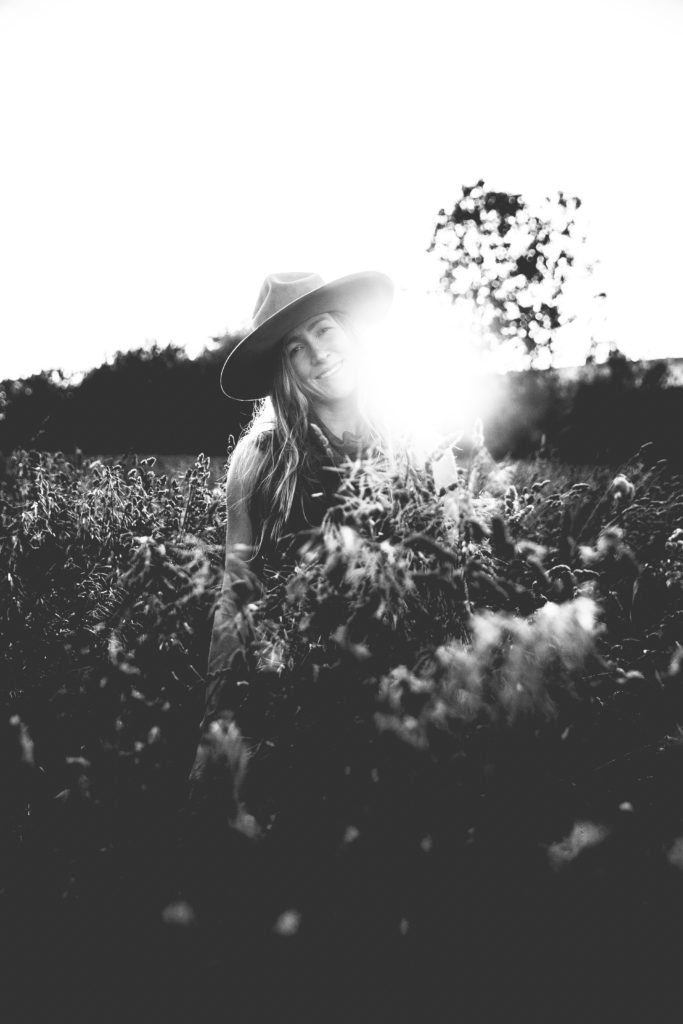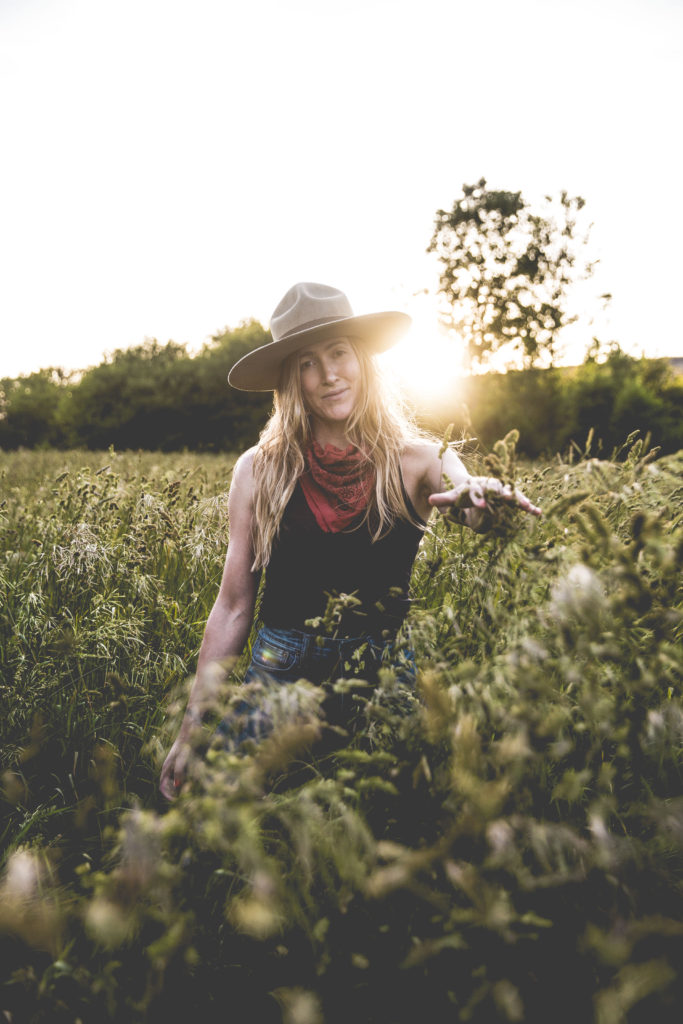

We’re taking our first cut of hay this week. People are always curious about what this little farm is growing so I’ll share with you now that we grow an orchard hay which is mostly grass with some alfalfa and clover mixed in — it’s an excellent horse hay. Our farm has water rights to the Snake River and this hayfield of ours is irrigated by handlines which are long sections of metal pipe with sprinkler mounts. These pipes have to be carried out and attached to each other by hand across the span of our hayfield which is cumbersome work and it only gets more difficult as the hay grows. The work becomes uncomfortably humid as the season warms up and as the hay grows taller it’s like wading through hip deep water out there. I actually really hate moving handlines but a hayfield is a beautiful thing, provides organic weed free food for our own horses and our hay goes to market — it’s part of our yearly income so we get the job done around here!
We take three cuts of hay a year. We don’t own our own haying equipment so we have a neighbor cut it for us — he hays throughout this ranching community and does a good job. He pays us per bale that comes off our property and then he turns around and sells it himself locally. It’s actually kind of a bad deal for us, it’s a ton of work to keep that field growing and we pay for our water rights every year. We would love to have our own tractor and swather but we’re not quite there yet. I do look forward to making 100% profit on our hay someday though. After a season of irrigation work I always feel let down by the hay checks.
Robert estimates our first cut of hay will put up about 800 70lb bales this week which is a beautiful first cut. Some of our hayfield has grown taller than me! It’s a lush place that the wind plays like an instrument these days. I’ll be sad to see it mowed. But that’s the way of things. The first cut is always the sweetest!
If you live in Southern Idaho or South Central Idaho and you’re looking for high quality horse hay, please feel free to email me about it. Our field is never sprayed and it’s grown with a lot of love and a lot of cussing by me if I’m having to move handlines by myself…so it’s extra zesty.
Our place isn’t huge but it’s hard working. I come from Saskatchewan, land of commercial, non-irrigated, mono-culture-mega-farming. My relatives always seem confused when I refer to this place as a farm because it’s less than 2000 acres. I think there’s some danger in trying to market something as bigger than it really is. Based on my roots, I would call this place of ours an acreage if it was just a house plopped on some land with a couple of gardens. Because it actually has a crop going to market on a yearly basis that contributes to our annual income here, I call it a small, working farm. There’s no growing season like the high desert growing season if you have water rights and the roots we put down sink themselves into rich, volcanic, river flood plain. There isn’t anything we can’t grow. Amen.
